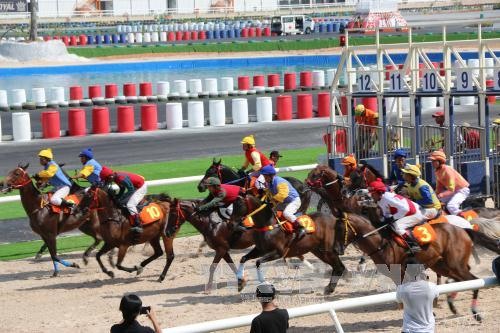Viet Nam allows sports betting
The National Assembly on Thursday morning passed the Law on Sports and Physical Training, with the majority voting yes to the controversial bill.
 |
| A horse race held at the Dai Nam Tourism Area in the southern province of Binh Duong |
Four hundred and fifty-seven deputies voted to approve the bill, accounting for 94.46% of those present in the assembly hall, while only one voted against it. Two deputies abstained. The law will go into effect on 1 January 2019.
With this law, Viet Nam legalises sports betting and considers it a conditional business in the country. Sports betting is under the strict control of State bodies, and must ensure transparency, objectivity and honesty, as well as ensure the rights and obligations of involved parties.
Vietnamese dong is used in sports betting in Viet Nam.
The Government will decide the list of sports activities on which betting is allowed, and provide more detailed regulations on the business.
Early last year, the Government issued a Decision on a pilot programme of betting on horse racing, dog racing and international football.
Additionally, the newly-approved Law on Sports and Physical Training does not make swimming a compulsory subject at school, despite the fact that it was proposed in the draft law.
During discussions on the draft law late last month, deputies said that swimming was a necessary survival skill as Viet Nam is a country of many bodies of water, plus it is facing the negative impacts of climate change. However, other deputies said that it was impractical to make swimming a compulsory subject because schools lacked swimming facilities and swimming teachers.
Costs for swimming lessons could burden both families and schools, especially those in disadvantaged remote areas. So, under the law, swimming would be given priority to develop. Schools and public sports centres would co-operate to promote physical training and indoor sports.
The new law also regulates that sport areas would be included in the projects for schools, residential areas, industrial zones, hi-tech zones or military camps.
(Source: VNS/ DA NANG Today)